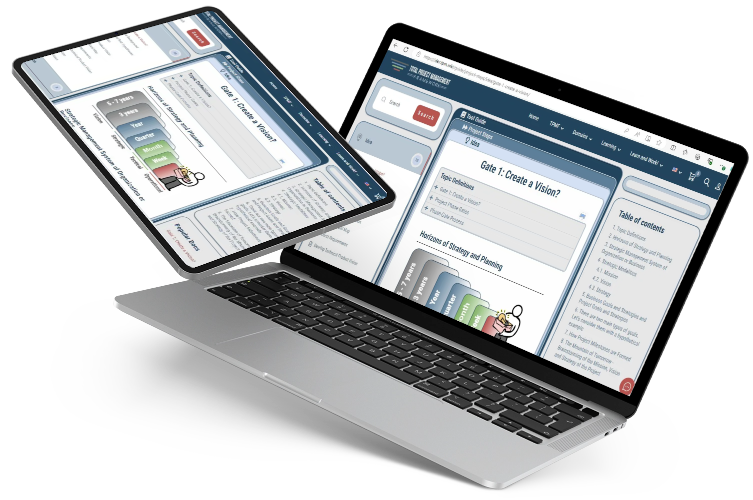Total Project Management Framework
Is a compilation of project management tools created by project management expert, business consultant and coach Alexey Koshelev.
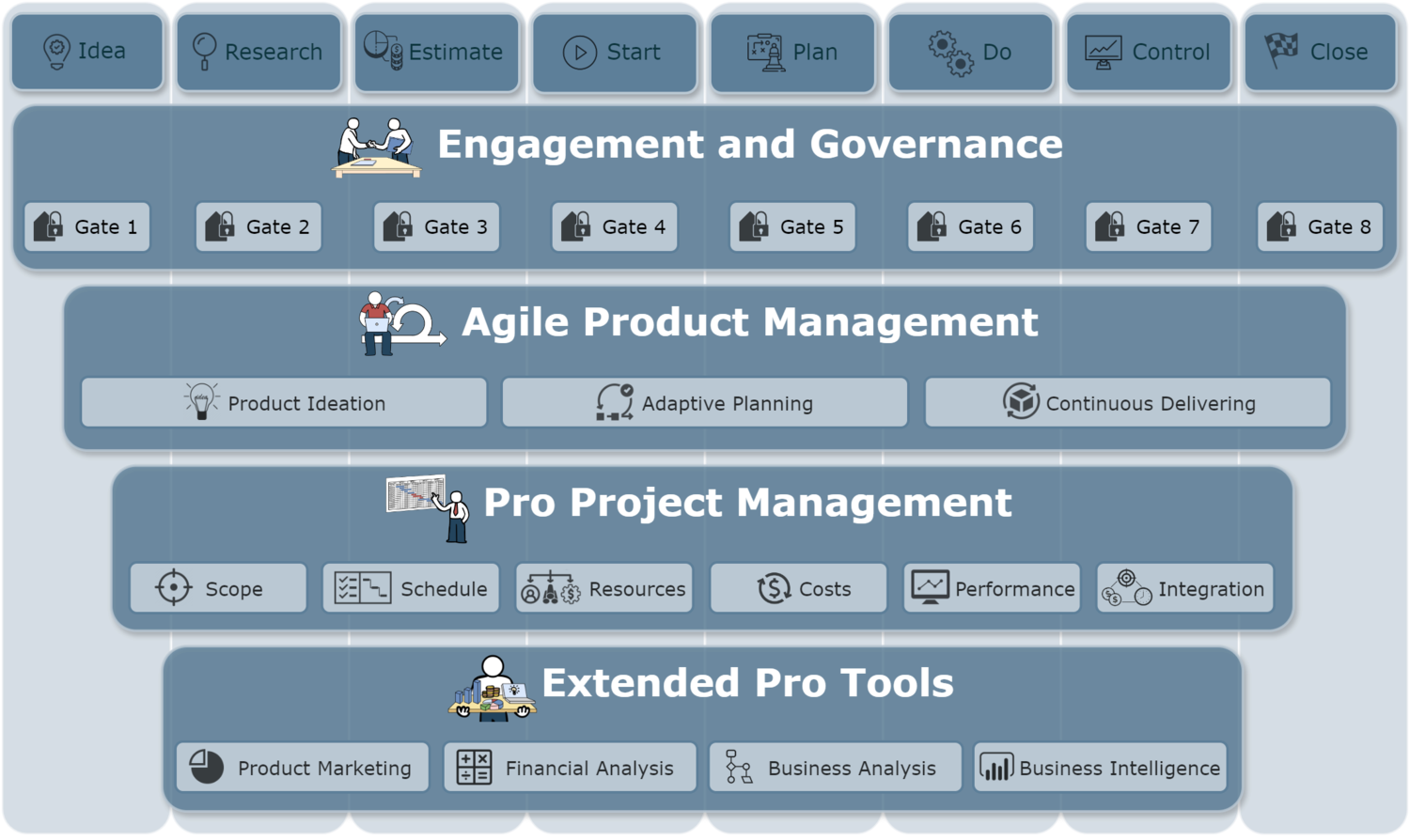
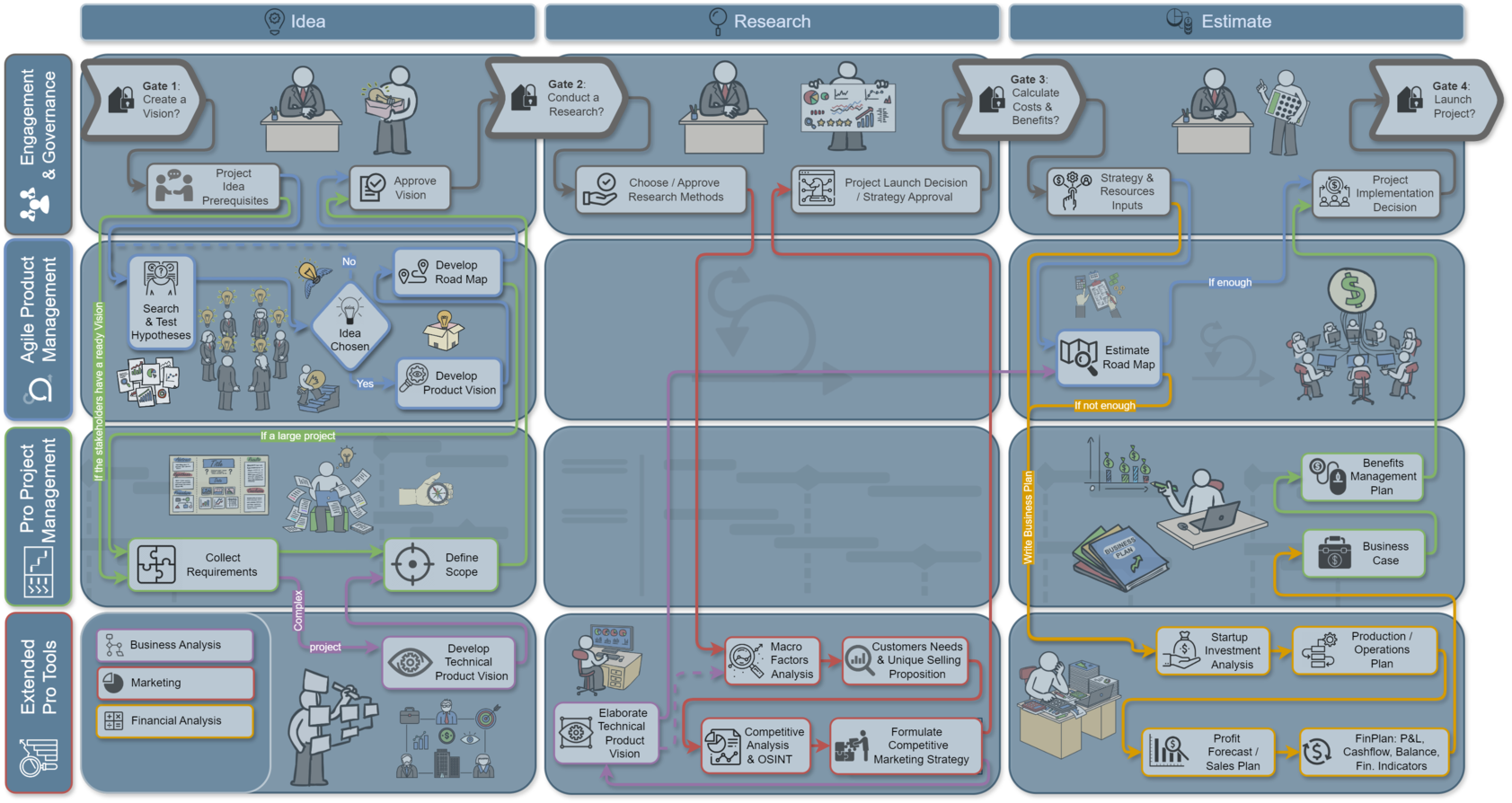
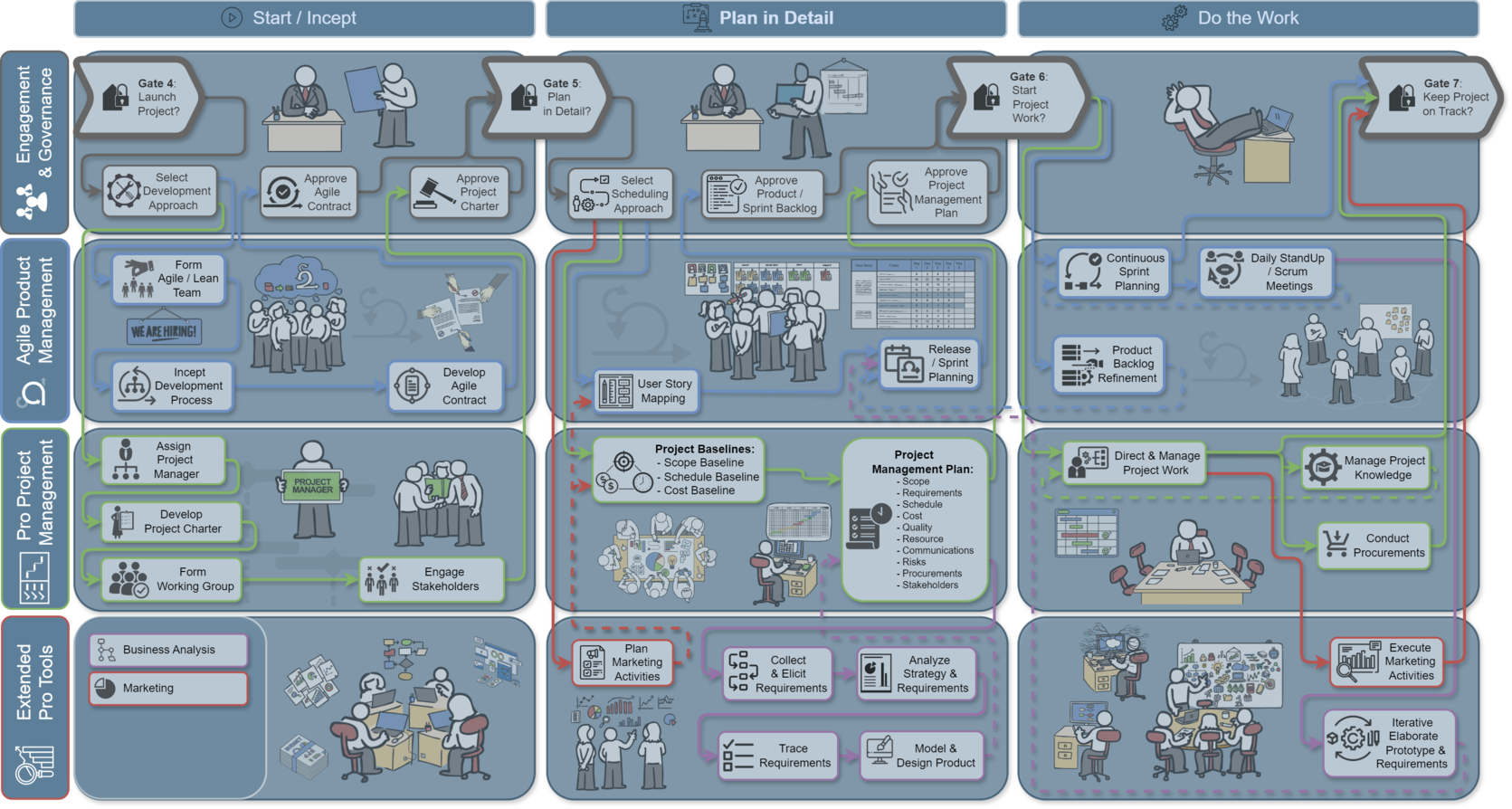
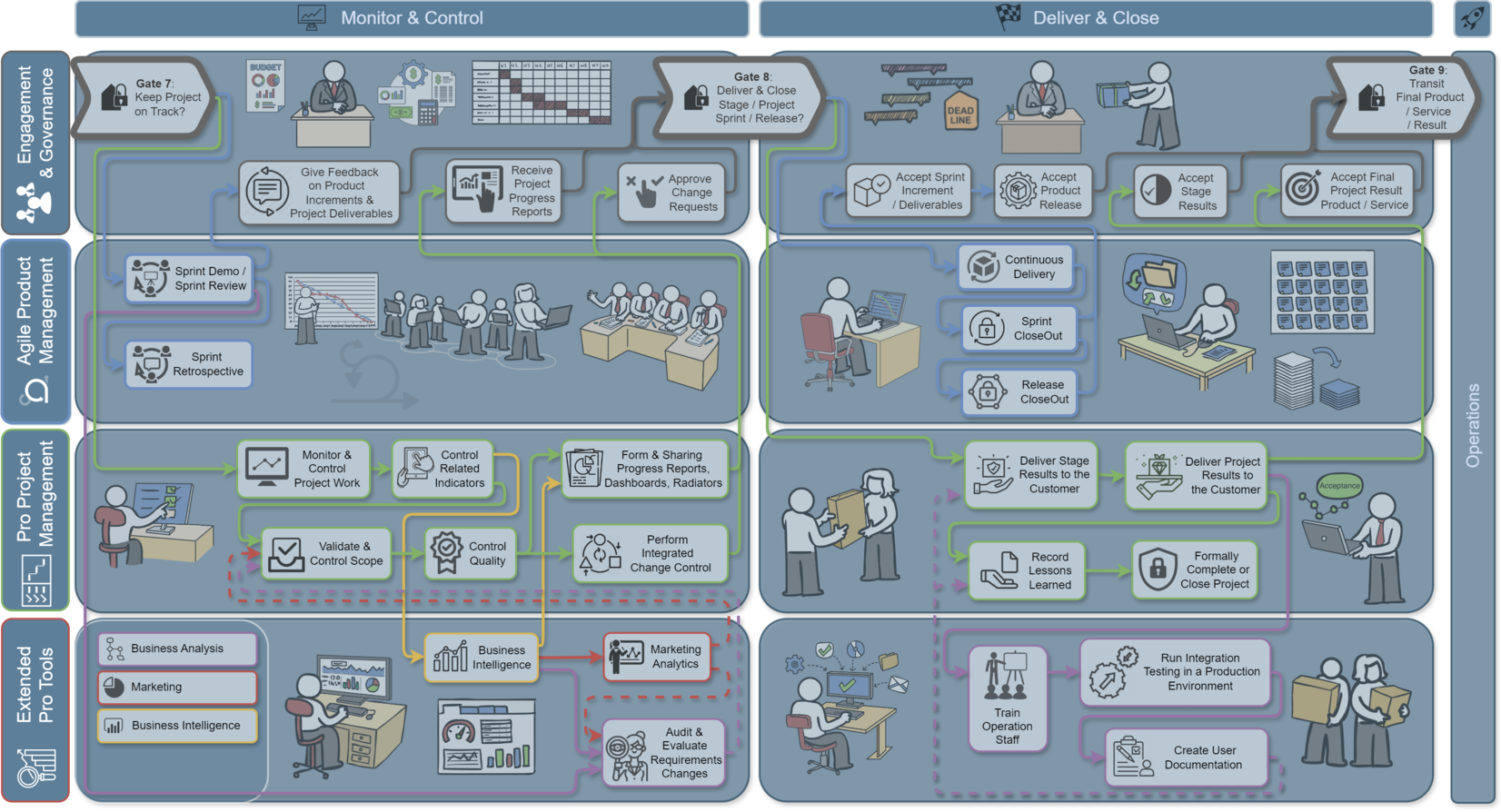
Total Project Management Tool Levels
The basis of the Total Project Management Framework is
the Total Project Management Tool Levels.The metaphorical meaning of this model is to start the project from the level of tools "Engagement and Governance" and go deeper, referring to the underlying levels of tools.Total Project Management Project Steps
The basis of the General Stages of the Project Management Process is
the integration of a comprehensive approach to project management through the following stages: Idea, Research, Evaluation, Initiation, Plan, Execution, Control, Closure.Standards and Methodologies with which the TPM Framework is aligned
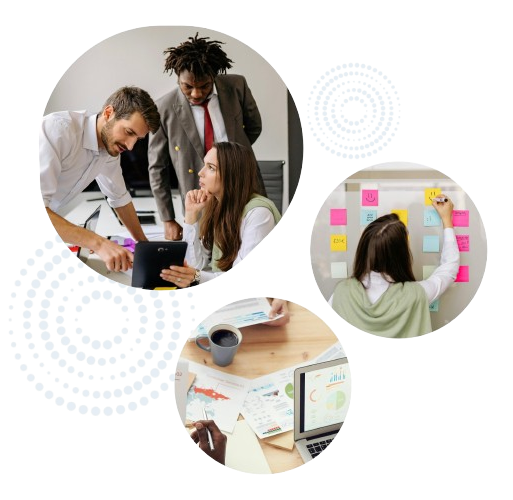

Foundational Standards:
- A Guide to the Project Management Body of Knowledge (PMBOK®7 Guide)
- A guide to the project management body of knowledge (PMBOK®6 Guide)
- PMBOK®6 Guide Russian
- The PMI Guide to BUSINESS ANALYSIS
- The Standard for Earned Value Management
- The standard for organizational project management
- The standard for portfolio management
- The standard for portfolio management
- The standard for program management
- The Standard for Risk Management in Portfolios, Programs, and Project

Practice Standards & Framework
- Practice standard for project configuration management
- Practice Standard for Project Estimating
- Practice standard for scheduling
- Practice Standard for Work Breakdown Structures
- Project manager competency development framework

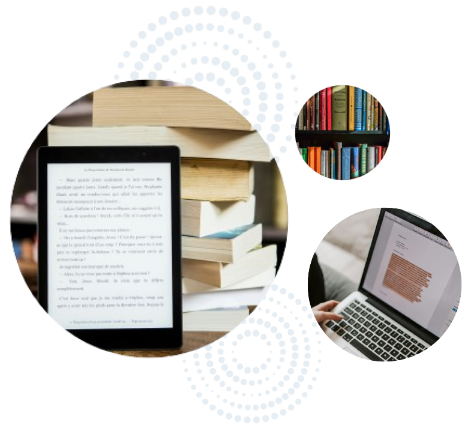
Practice Guides:
- Agile Practice Guide
- Benefits Realization Management
- Business Analysis for Practitioners A Practice Guide
- Governance of Portfolios, Programs, and Projects A Practice Guide
- Implementing Organizational Project Management A Practice Guide
- Managing Change in Organizations A Practice Guide
- Navigating Complexity A Practice Guide
- Requirements Management A Practice Guide

Agile Methodologies and Frameworks
- Agile Manifesto
- Scrum
- Scrumban
- Scrum of scrums
- Large-scale scrum (LeSS)
- Kanban
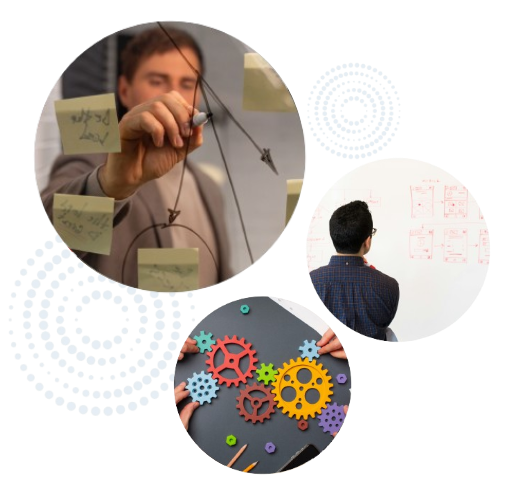
Educational Сomponent
The practical business course “Total Project Management” is:

You will develop real projects as you learn, applying every tool and technique in a step-by-step manner, ensuring you gain practical, actionable skills.
You will learn to use tools that are not only well-known in world practice but have also been thoroughly tested and validated across industries.
At the end of the course, practitioners will defend their project to demonstrate their acquired knowledge, competencies, and skills.
Course Objectives and Outcomes
Practitioners will receive the following results from the course:

Learn to generate project ideas from scratch and maximize business value by identifying opportunities and thinking strategically. You will explore creative techniques for idea generation and align those ideas with business objectives to ensure maximum impact and value.

Learn to form and test hypotheses of project ideas, make preliminary estimations, and compare different project alternatives. You’ll develop the skills to evaluate potential projects, considering various factors, and choose the most promising options based on sound analysis.

Master the tools for collecting project requirements and defining project scope boundaries. You will learn how to gather essential input from stakeholders, structure requirements efficiently, and set clear limits for project scope to avoid scope creep and ensure the project stays on track.

Learn to analyze the external environment of the project (desk marketing research). You’ll form strategies for ensuring project competitiveness, considering market trends, industry positioning, and environmental factors to lead the project to success through informed decisions..

Master the tools for estimating project costs and economic efficiency. You will calculate financial indicators such as Breakeven Point, Payback Period, ROI, NPV, and IRR, as well as other relevant metrics to assess the viability and profitability of the project.

Learn to determine the most optimal development, planning, and control approaches from the range of existing methodologies, including Predictive (Waterfall), Adaptive (Agile), Incremental, and Hybrid models. You’ll gain the ability to choose the best approach for each specific project based on its requirements.

Master the tools for adapting various approaches to development, planning, and management to the unique circumstances of a specific project, product, or organization. You’ll become proficient in tailoring methodologies to fit the context, ensuring effective project execution.
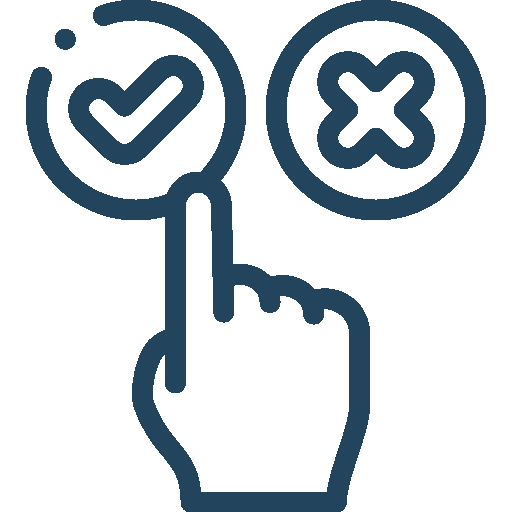
Learn how to use key tools in Agile and Professional Project Management frameworks like SCRUM and KANBAN, and integrate advanced tools from PMBOK. You’ll also explore techniques from related fields such as Business Intelligence, Marketing, and Financial Analysis to give your projects a competitive edge.
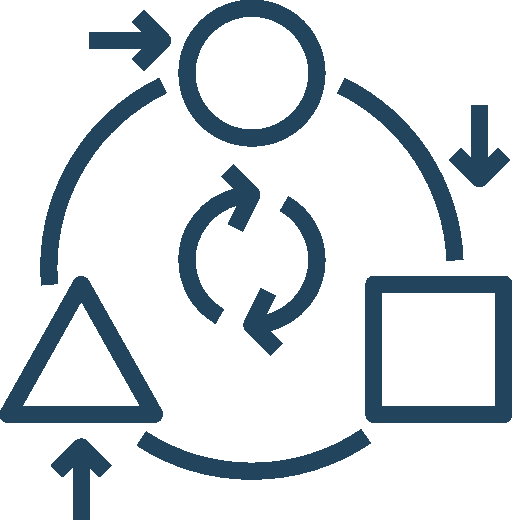
Master the main tools for monitoring, controlling, and managing project changes. You’ll gain hands-on experience with tools such as Automated Reporting, Earned Value Analysis (EVA), Critical Chain Method (CCPM), and Integrated Change Control to ensure your projects stay aligned with goals.
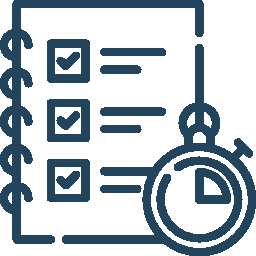
Learn to assess, plan, assign, and manage project resources across varying project sizes, from small projects to large portfolios. You will take into account all types of resources including labor, materials, equipment, infrastructure, and financial resources for efficient management.
Learn to identify, analyze, and manage project risks. You will develop risk management strategies, assess potential impacts, and apply techniques to mitigate or prevent risks that could hinder project success, ensuring resilience in the face of uncertainty.
Master the tools for planning, implementing, and controlling project procurement. You will learn how to manage procurement processes efficiently, from vendor selection to contract management, ensuring your project gets the necessary resources on time and within budget.
Total Project Management Project Steps
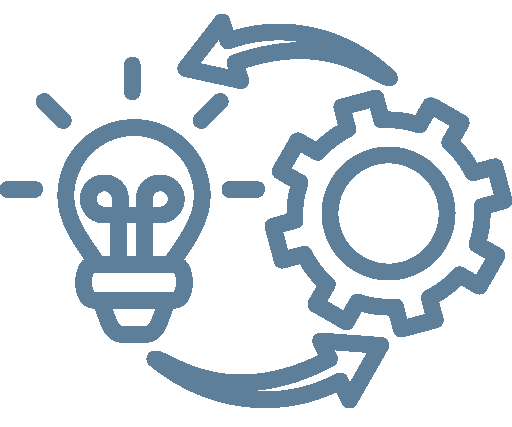
Implementation of Principles
To practically implement the principles of project development and lifecycle by tailoring management tools according to the selected model or framework.
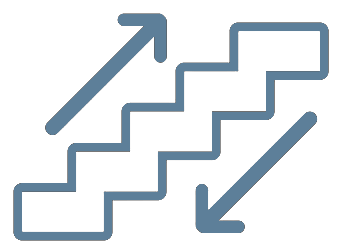
Direction of Steps
Each step of this process is aimed at ensuring consistency, planning, and control to achieve the successful completion of the project.
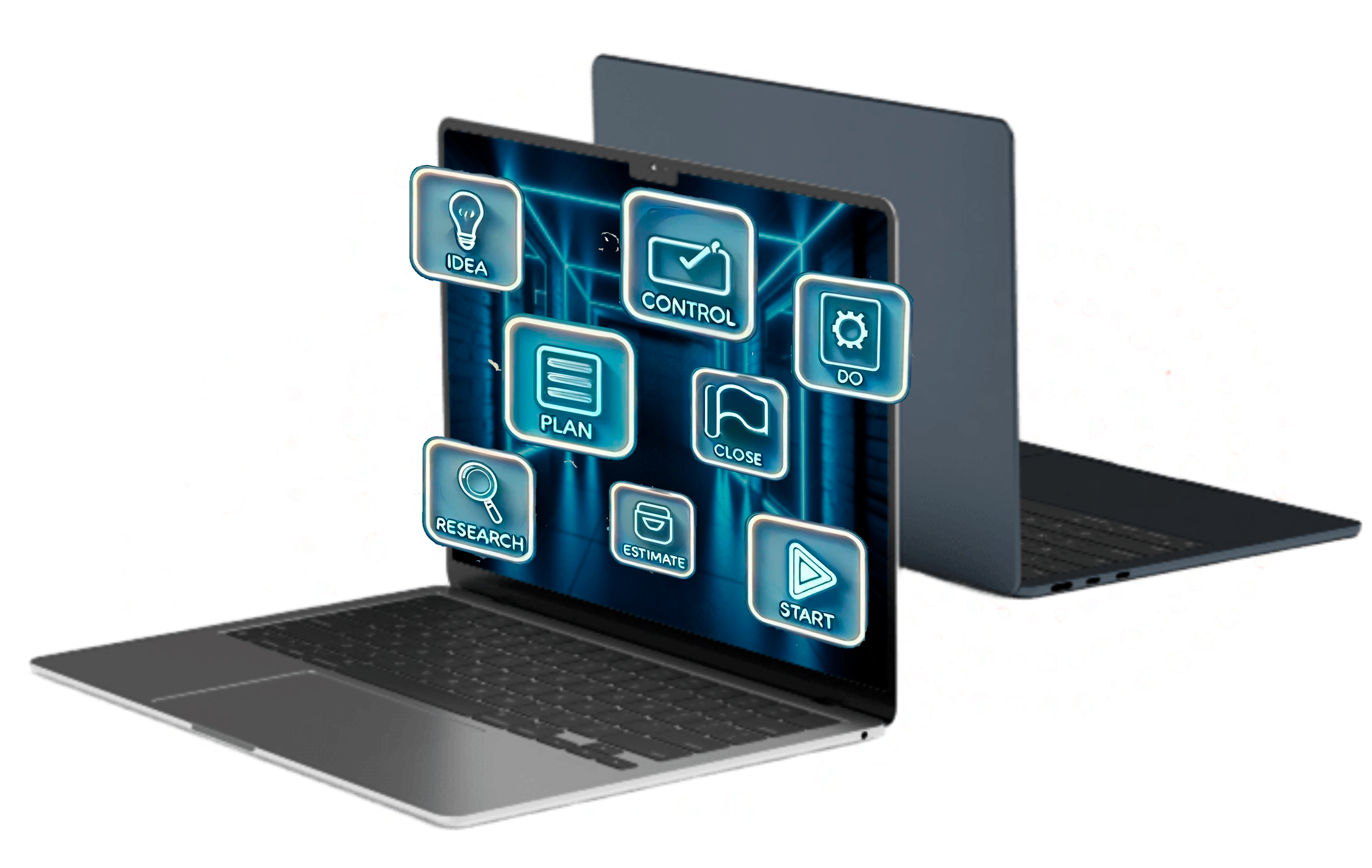
The Total Project Management Project Steps allows:
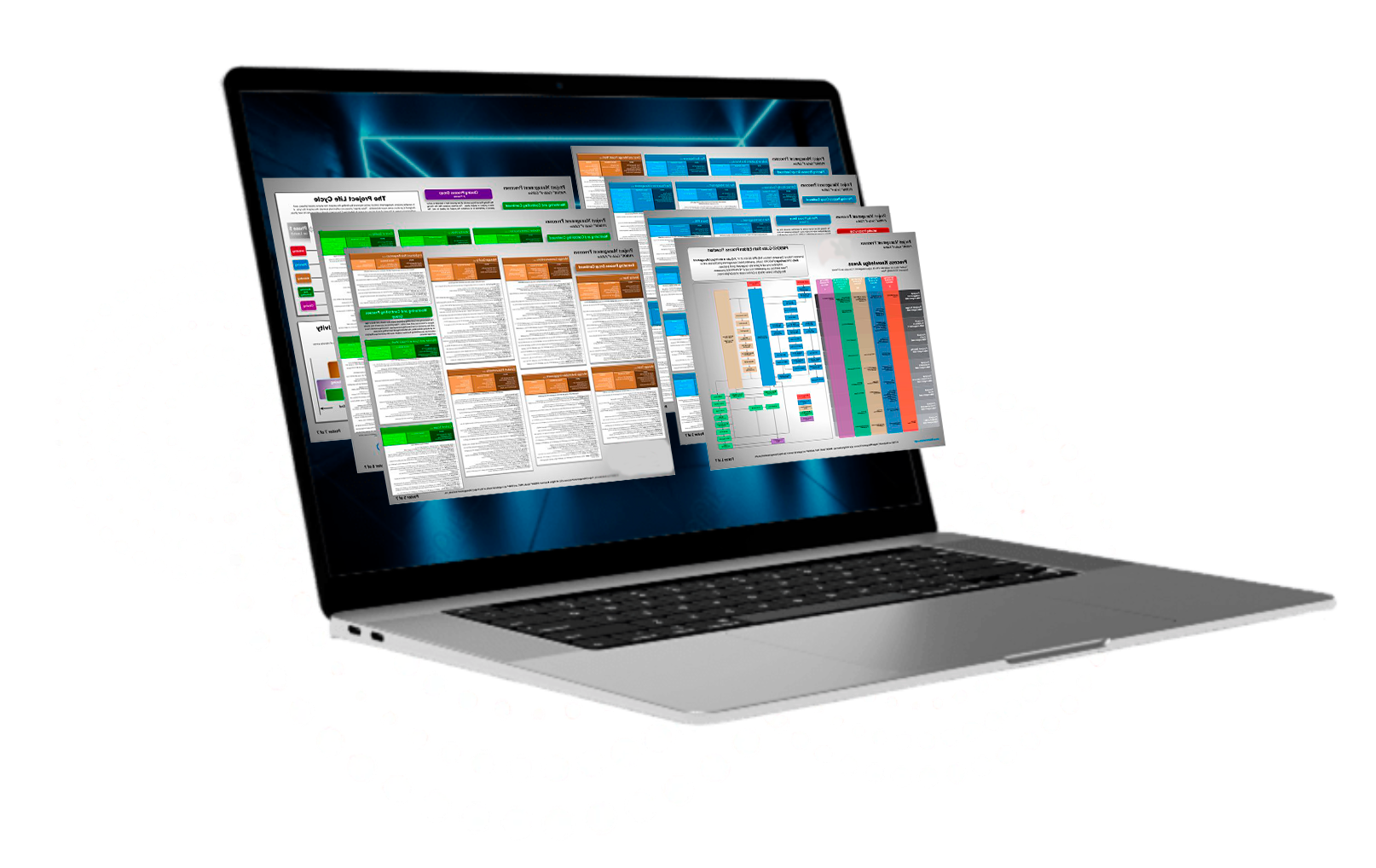
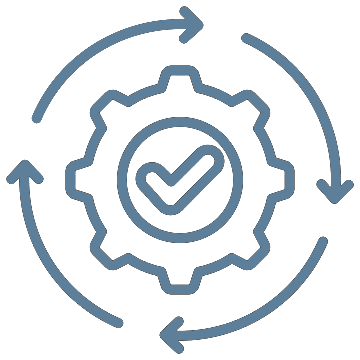
To Practice the Principles of the Development Approach and Life Cycle
Put into practice the principles of the Development Approach and Life Cycle by tailoring project management tools (Tailoring) from a wide range of popular models and frameworks, using practical methods and artifacts;
Utilize management processes
Leverage the structured 49 project management processes from the Sixth Edition of the PMBOK® Guidelines, while maintaining the flexibility and relevance of the 12 principles and 8 execution domains from the Seventh Edition.
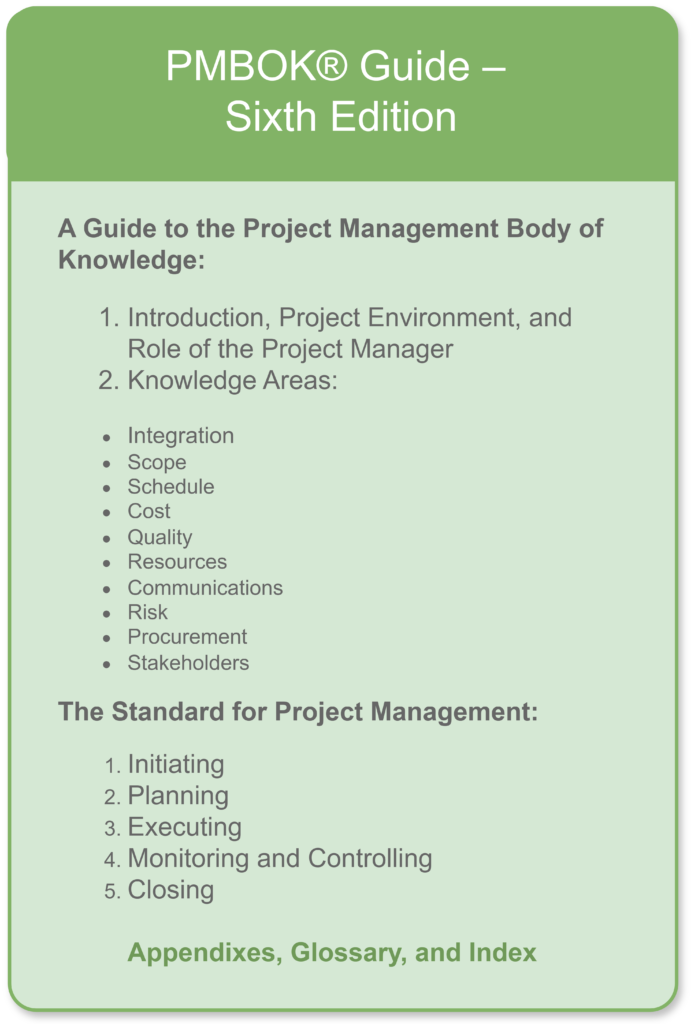

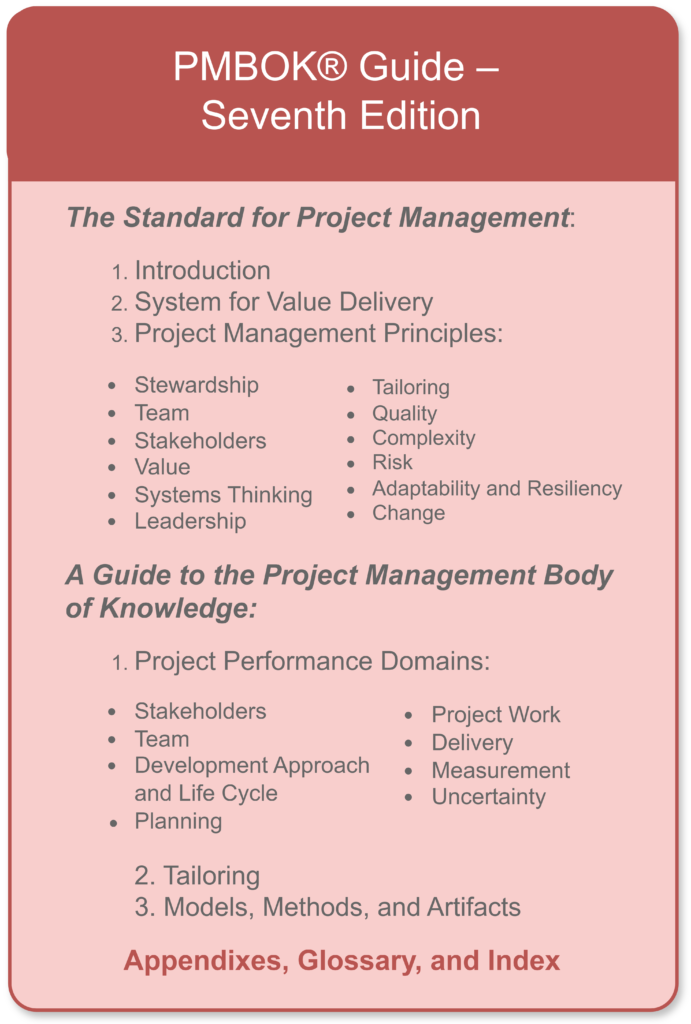
Total Project Management Tool Levels
Overlying Level
Each overlying level contains lighter tools that provide less accuracy and project elaboration, but provide faster results.
Underlying Level
Each underlying level contains heavier tools that give greater accuracy and project elaboration, but require more time and rigor in their application, and require more time to learn and master.
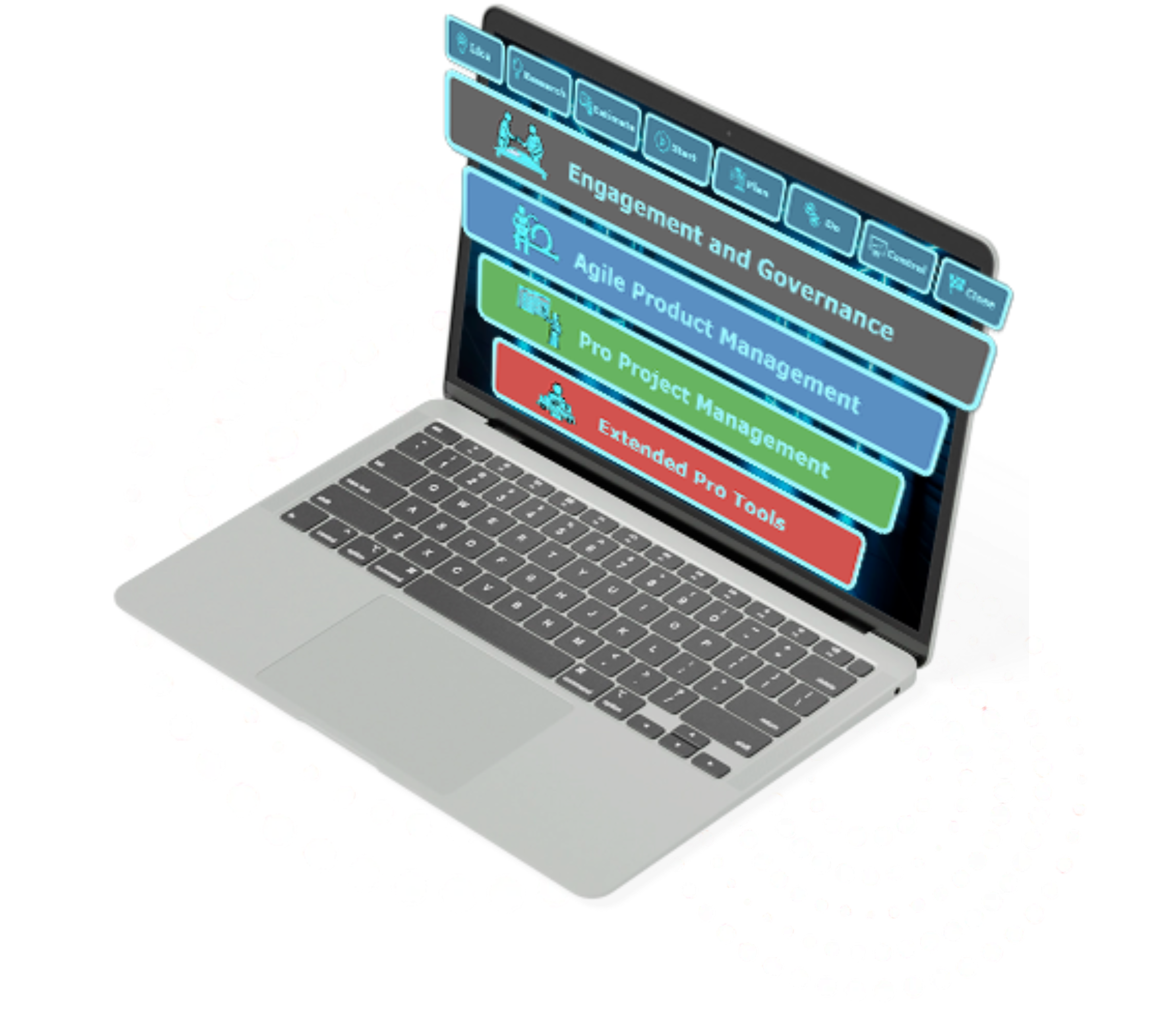
Therefore, Total Project Management Tool Levels allows:


The Most Popular PM Tools
Use the whole range of the most popular project management tools known in the world practice, from Adaptive approaches - giving the fastest results, to Predictive approaches and Advanced professional tools.
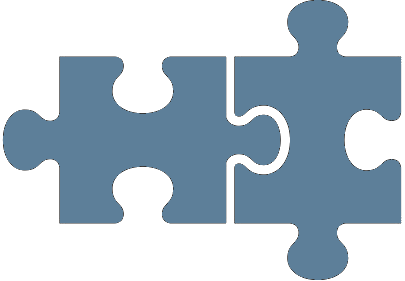
Create Your Own Hybrid Model
Create a customized hybrid model with tools that fall under different project management methodologies and frameworks using the Project Levels and Project Steps of Total Project Management Framework.
Tool Guide
Go to the ultimate interactive map of all project management processes!
Practical Business Course: “Total Project Management”
Master project management with a course that simplifies the complex through visual materials.
